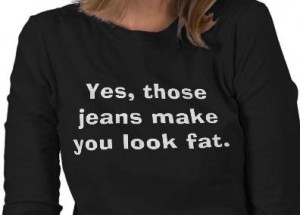 I blogged recently about common misuses and abuses of the English language. It was all prompted by the alluring Scarlett Johansson uttering what I assumed to be a scripted line in a Super Bowl commercial. Firstly, you are all welcome—who else could manage to fit in two (count them, TWO) pictures of the sultry, pouting, mesmerizing Scarlett J (on a blog about writing, no less)—okay, okay, enough about the twenty-first century’s answer to Marilyn Monroe, lest people start to think the point here is to pin up as many pin-ups as possible.
I blogged recently about common misuses and abuses of the English language. It was all prompted by the alluring Scarlett Johansson uttering what I assumed to be a scripted line in a Super Bowl commercial. Firstly, you are all welcome—who else could manage to fit in two (count them, TWO) pictures of the sultry, pouting, mesmerizing Scarlett J (on a blog about writing, no less)—okay, okay, enough about the twenty-first century’s answer to Marilyn Monroe, lest people start to think the point here is to pin up as many pin-ups as possible.
The cathartic effect of writing the blog seemed to have helped my (slight) case of obsessive-compulsive disorder when it comes to other people’s mangling of words into lesser, completely incorrect and useless versions of their former selves. That is, until I heard it. Today. One of the most egregious examples of such language abuse, and it’s a blasphemy I never even mentioned last time. Oh, trust me, this one makes the skin crawl and the little man inside decide to turn up the cold sweat machine.
Yep, cliché or not, fingernails on a chalkboard!
 But I’m not going to say what it was. Not yet. Because it actually got me to thinking about a related question that wasn’t really discussed last time:
But I’m not going to say what it was. Not yet. Because it actually got me to thinking about a related question that wasn’t really discussed last time:
When and how (and should) we correct people when they are in the process of—or have just finished—vexing the vernacular, joking in gibberish, antagonizing articulation, littered the locution, or puked their parlance? We aren’t just talking about writers here, after all. And even writers—perhaps especially some writers—do not appreciate their vocabulary being called into question. But they really should care.
Shouldn’t they? Writers in particular, but shouldn’t everyone? I’m not talking about ten-thousand dollar words here. I’m not even speaking of thousand dollar ones. We’re not talking about running around and accusing people of not being advanced enough in speech or needing to be more wordy and articulate. Simple words and phrases are FINE. In fact, that is what we’re really discussing: simple turns of phrase that writers, non-writers, readers, non-readers, and, well, anyone who made it out of eighth grade really ought to know.
 If someone drives their car erratically, the are pulled over by the police (and never mind the unkind and insulting gestures I show them); hunters and fishermen that do not follow the rules, regulations, and safety of their chosen pastime are fined; even drunkards who whiz in the alley are taken away to the hoosegow.
If someone drives their car erratically, the are pulled over by the police (and never mind the unkind and insulting gestures I show them); hunters and fishermen that do not follow the rules, regulations, and safety of their chosen pastime are fined; even drunkards who whiz in the alley are taken away to the hoosegow.
So why shouldn’t someone step up and take on the role of Grammar Police? And don’t say “because it’s like volunteering to be Hall Monitor and I don’t want to be stuffed into any more lockers.” Okay, I suppose that is a fair response. No one wants to be a pain; no one wants to be a rat. But let me ask you a serious question:
Say you’ve just taken a big bite of a delicious hot dog, straight off the cart on a corner in NYC, man. Best hot dog you’ve had in years. And you have no idea but you’ve got a dollop of mustard hanging off your chin that looks like some awful attempt at a grotesque goatee parody. It’s disgusting, and you look like a fool.
 Do you want your friend to mention it so you can clean right up? Pull you aside, if possible, or—dangit—tell you right there in front of the food cart guy if necessary, or would you rather strut down Broadway, all the the way through Times Square, and, if you’re really fortunate, have Al Roker from the Today show put you on camera live, for the whole nation to ogle?
Do you want your friend to mention it so you can clean right up? Pull you aside, if possible, or—dangit—tell you right there in front of the food cart guy if necessary, or would you rather strut down Broadway, all the the way through Times Square, and, if you’re really fortunate, have Al Roker from the Today show put you on camera live, for the whole nation to ogle?
I know people who wouldn’t tell you that the Mount Everest of mustard is on your chin until it’s long since dried there and is never coming off. Not that they’re cruel (although some of them are)—many are just not capable of telling someone the truth (various renditions of “Do I Look Fat In These Jeans?” resonate). I’ve made it clear to these people: if I put something on myself, something falls off food and lands anywhere on me, or if I utter an atrocious mispronunciation or misuse of a word, I want to know about it before it can do any damage.
Not after.
After is too fishing late.
 Granted, there are people who would chastise you for telling them their speech is incorrect. They might even call you a name or two. But if you love them, you will take the smack in the face to save them the embarrassment of looking like an illiterate. If you care at all about these people, you owe it to them to (quietly, perhaps) let them know they are, well, making a side-show of their use of the English language (or whichever language you and they may be speaking). And I find more people than not want you to tell them the truth. Yes, “do these jeans make me look fat?” can still be the most difficult question since “does this corset make my rumpus look overwrought?” But if a person doesn’t want to know, and you are a friend, you might say it is your sworn duty to say something regardless.
Granted, there are people who would chastise you for telling them their speech is incorrect. They might even call you a name or two. But if you love them, you will take the smack in the face to save them the embarrassment of looking like an illiterate. If you care at all about these people, you owe it to them to (quietly, perhaps) let them know they are, well, making a side-show of their use of the English language (or whichever language you and they may be speaking). And I find more people than not want you to tell them the truth. Yes, “do these jeans make me look fat?” can still be the most difficult question since “does this corset make my rumpus look overwrought?” But if a person doesn’t want to know, and you are a friend, you might say it is your sworn duty to say something regardless.
Oh, before I forget, the word usage that got me started was “Pacific”. Not as in “the Mexicans claim the Pacific Ocean has no memory” but rather “don’t be too pacific about whether you want a new car or a used car”. Man, if that isn’t the biggest glob of yellow mustard to ever hang off a chin, I don’t know what is. I told my friend.
He smashed the hot dog in my face.
What we wing men won’t do to save a friend a life-altering embarrassment.
Or the total waste of a good dollop of quality condiment.
~~~~~~~~~~~~~~~~~~~~~~~~~~~~~~~~~~
The blank page is dead…long live the blank page.
~~~~~~~~~~~~~~~~~~~~~~~~~~~~~~~~~~
 Author known to use spontaneous satire, sarcasm, and unannounced injections of pith or witticisms which may not be suitable for humorless or otherwise jest-challenged individuals. (Witticisms not guaranteed to be witty, funny, comical, hilarious, clever, scintillating, whimsical, wise, endearing, keen, savvy, sagacious, penetrating, fanciful, or otherwise enjoyable. The Surgeon General has determined through laboratory testing that sarcasm can be dangerous, even in small amounts, and should not be ingested by those who are serious, somber, pensive, weighty, funereal, unsmiling, poker-faced, sober, or pregnant.) For those who enjoy and/or revel in the utterance of profanity, the author reserves the right to substitute “fish” for “fuck” without fear of repercussion, mental reservation, or purpose of evasion.
Author known to use spontaneous satire, sarcasm, and unannounced injections of pith or witticisms which may not be suitable for humorless or otherwise jest-challenged individuals. (Witticisms not guaranteed to be witty, funny, comical, hilarious, clever, scintillating, whimsical, wise, endearing, keen, savvy, sagacious, penetrating, fanciful, or otherwise enjoyable. The Surgeon General has determined through laboratory testing that sarcasm can be dangerous, even in small amounts, and should not be ingested by those who are serious, somber, pensive, weighty, funereal, unsmiling, poker-faced, sober, or pregnant.) For those who enjoy and/or revel in the utterance of profanity, the author reserves the right to substitute “fish” for “fuck” without fear of repercussion, mental reservation, or purpose of evasion.



I’m quick to correct people on speaking properly. I usually get called annoying, or hear, “Who/Nobody cares!” To which, I typically reply, “You should.”
The most popular ones that people I encounter screw up are “can/may & cannot/may not.” For example: “Can I go outside?” To which I reply, “Yes, you can, but no you may not.”
Yes, it is occasionally kids, but it’s far more the adults that make this mistake, and get ticked when I point it out. It’s a bloody shame.
Agreed! Thanks to the crazy accents over here (they vary every 5 miles or so) we get “pacifically” quite a lot of poor pronunciation. Innit, rehhhhhht?
*throws up into his morning bangers and mash*
I don’t think I could resist correcting that one. Nope. *shudders*
My wife – bless her – is an expert at picking people up on their grammar, both spoken and written. It usually leads to long debates around the dinner table (thankfully with a few bottles of wine) where we argue our positions with gusto. The only trouble my wife runs into however – particularly with the spoken word – is that she is often intolerant of the many variations in dialect that exist, even in the same country, which inevtiably lead to subtle differences in the way words are spoken. I often will take these variations into account when I am writing dialogue…which is why she longer wants to be my editor.
Ahhhh – the Queens English – how positively @#$^ing delightful.